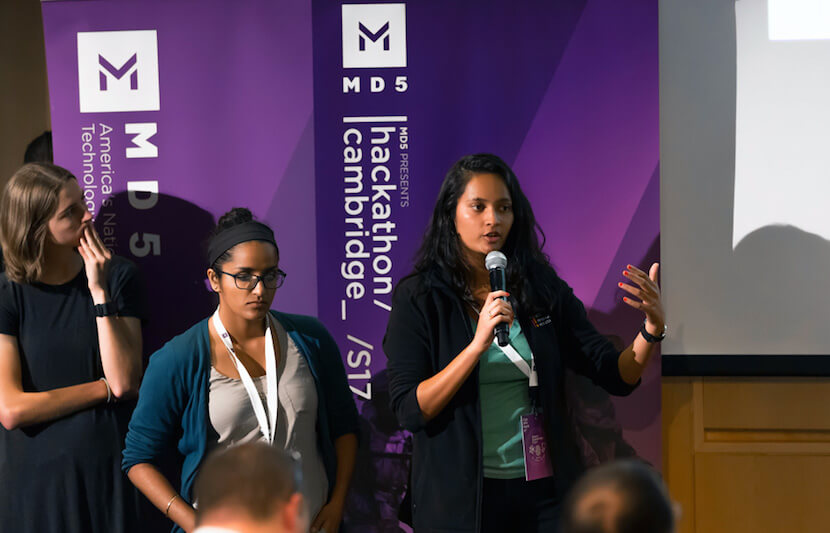Students from MIT and areas around Boston competed in a three-day hackathon to design functional fabric technology to aid soldiers, first responders, and victims of disaster. The hackathon was sponsored by the MIT Innovation Initiative, the Advanced Functional Fabrics of America Institute, and MD5, a partnership between the U.S. Department of Defense (DoD) and a network of national research universities.
The students were competing for two grand prizes of up to $15,000 each, which was awarded by MD5. The prize money would be used to fund the production and commercialization of their prototypes. Bill Kernick, a technology and partnership development executive working with MD5, told MIT News: “The idea of the hackathon is getting the sparks of these ideas moving and creating a relationship with these innovators, who may have not thought about working with DoD, to help solve some really hard problems.”
On the first day of the hackathon, a Friday night, the students learned about major challenges faced by various experts, including the military and first responders, in their fields. They then brainstormed and presented their ideas. Twenty-two teams were ultimately formed to work on the ideas, and MIT and other experts and mentors helped them shape those ideas over the next two days. On Sunday, 10 teams were chosen as finalists and two teams were selected as the winners.
One winning idea came from an MIT student group called “Remote Triage.” It was a sensor system that could be imbedded within the clothing of soldiers, which would monitor vital signs and report any injuries to field medics. What’s more, the system could guide medics to the location of injured soldiers and even prioritize the most gravely injured using a color code.
The second winning idea was from a group called “Security Blanket” whose idea came from a Drexel University student. As the name implies, this group developed a blanket for refugees and natural disaster survivors. The blanket is waterproof, and has an antimicrobial inner lining. It can also double as a sleeping bag or a backpack, and has luminescent strips to improve visibility.
While some teams had distinct ideas when they entered the hackathon, others were inspired by the experts brought in to talk about their real life challenges. For example, the students on the MIT Remote Triage team, who are also friends, conceived of their winning idea during dinner after an expert’s presentation on battlefield triage efficiency problems. “We came in with literally nothing,” Aditi Gupta, a PhD student in the Harvard-MIT Program in Health Sciences and Technology and Remote Triage team member, told MIT News. “We weren’t even planned on pitching,” she added.
Gupta believes that hackathons serve a purpose. “Hackathons are useful in opening your mind and seeing the bigger picture in terms of how your technology fits in society, as well as meeting people out of your field that have knowledge and expertise you don’t,” she told MIT News.
The second winning idea, Security Blanket, was similarly inspired by an expert’s recount of real life dilemmas. In this case, it was a first responder’s experience working with Hurricane Katrina victims that inspired Christina Kara, a Drexel University student who manages a lab that researches functional fabrics. She, too, felt that the hackathons are useful.
“Being in a situation, where I have a problem to solve and think about was a new experience for me,” Kara told MIT News. “It was an amazing experience.”
MD5 has invited all the teams to continue to work with it on their functional fabric ideas.
The University Network (TUN) spoke with Gupta to find out her team’s plans.
“Our next steps are to really start moving our project forward,” Gupta told TUN. “We’re working on developing the technology required for the project, as well as doing customer interviews and market research to ensure that we focus our prototyping around the needs of our target customers.”
“We actually just had a follow-up meeting with MD5, the DOD-affiliated group that was a sponsor of the hackathon to discuss next steps regarding awarding the funding as part of the prize, as well as other resources/mentorship they might be able to provide us with to help move our project forward as quickly as possible,” she continued.
All of the team members plan on continuing to work together on the project. “Our entire team has decided to continue working together to move the needle forward on this project,” she told TUN. “We’re all really excited about it, and the team has a broad range of expertise, which will be invaluable moving forward.”



